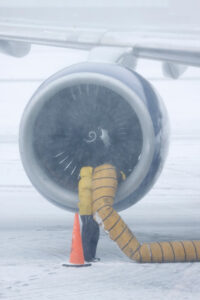Aviation insurance costs may soon increase
It seems as though the aviation insurance industry is going through some pretty big changes lately. Changes that have personally affected my employer and even my pilot friends. Insurance companies are looking for ways to curb their losses and that means they’re looking for safety, safety, and more safety. Because of this, now is the perfect time for flight departments to implement a Safety Management System (SMS) and step up the safety culture for all their flight operations.
According to the FAA, “SMS is the formal, top-down, organization-wide approach to managing safety risk and assuring the effectiveness of safety risk controls. It includes systematic procedures, practices and policies for the management of safety risk”. In other words, music to the ears of insurance adjusters everywhere.
The insurance market has bottomed out just as “catastrophic loss” claims are skyrocketing, so insurance rates are soaring. Insurance companies are adding restrictions to pilot experience levels, increasing the number of hours required to act as PIC and forbidding many “under qualified” pilots from flying in the left seat. All this as the pilot shortage continues to wreak havoc on business aviation. It’s beginning to look like the perfect storm.
In the face of these ever increasing insurance rates, there may be something that flight departments can do. NBAA is advising their members to emphasize their safety culture and compliance efforts to their underwriters in an attempt to minimize the increase in premiums. They recommend inviting your underwriter to your facility to offer a first-hand look at your safety practices. Explain the safety procedures and policies that you use and convince your underwriter that you take safety seriously. Show them your SMS aviation program in person or, if you don’t have a formal system, then explain what you do have, how it operates, and its effect on your operation. It may make you and your company stand out as a good safety risk, saving more than just money – it may ultimately save lives.









